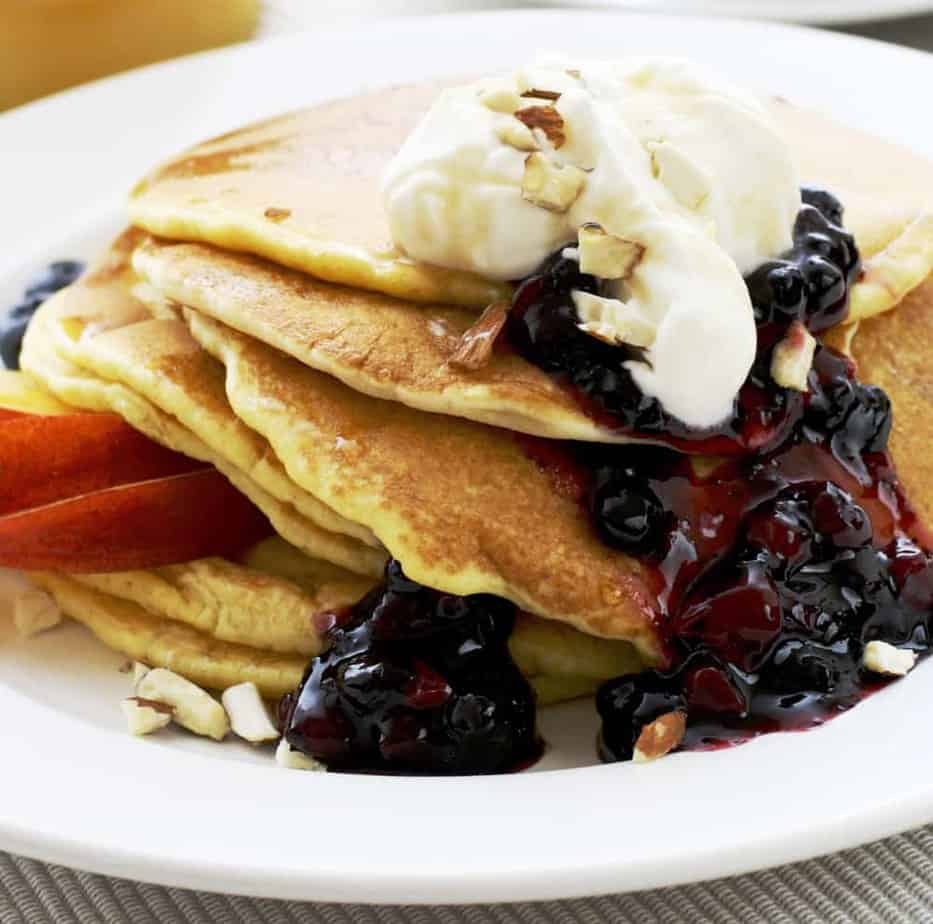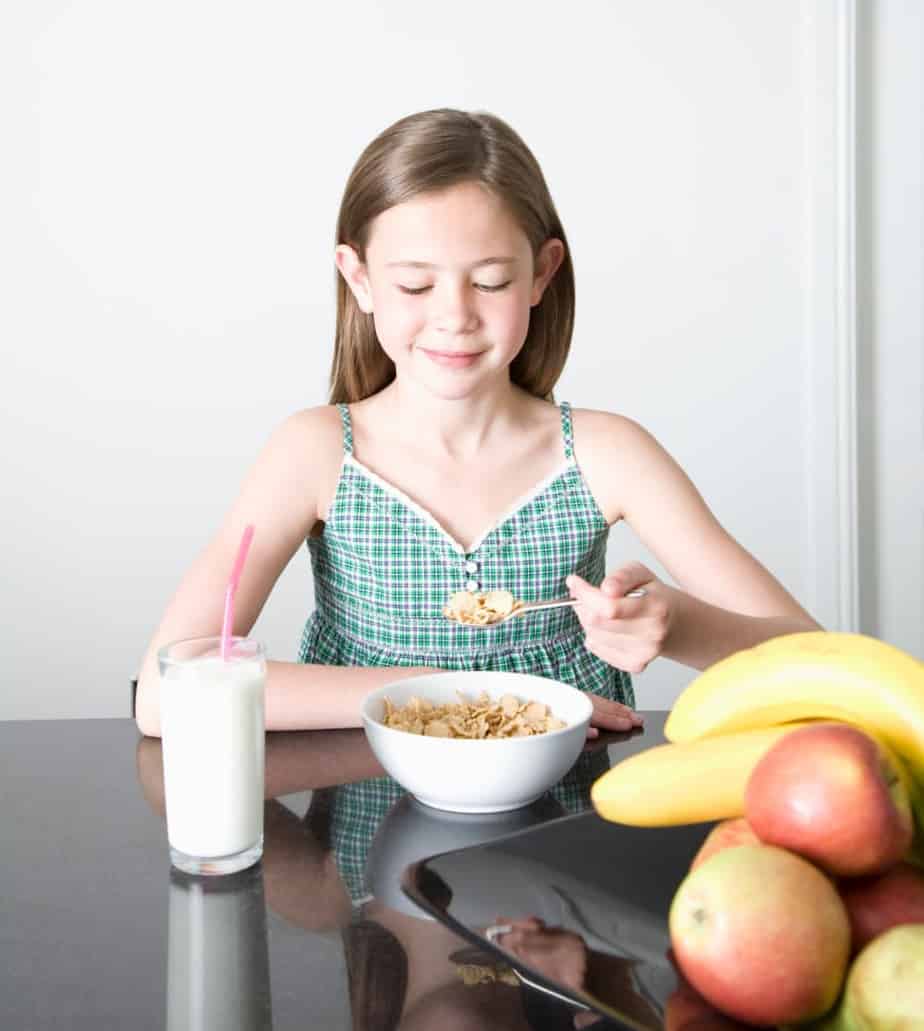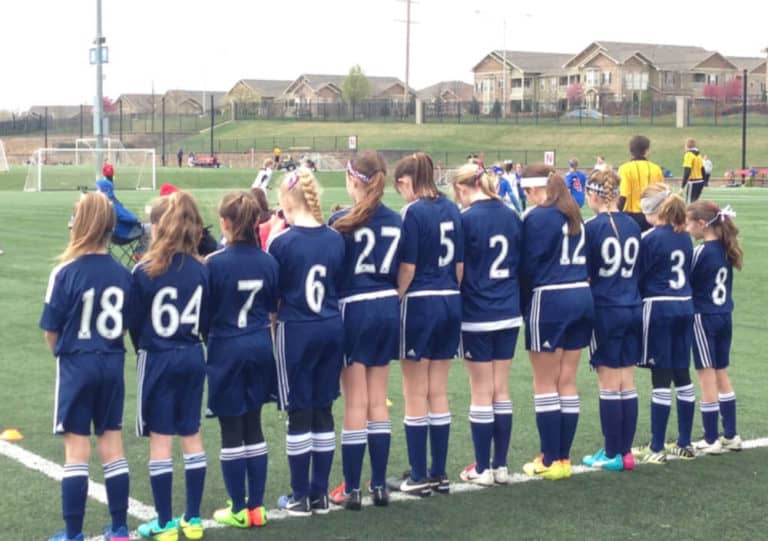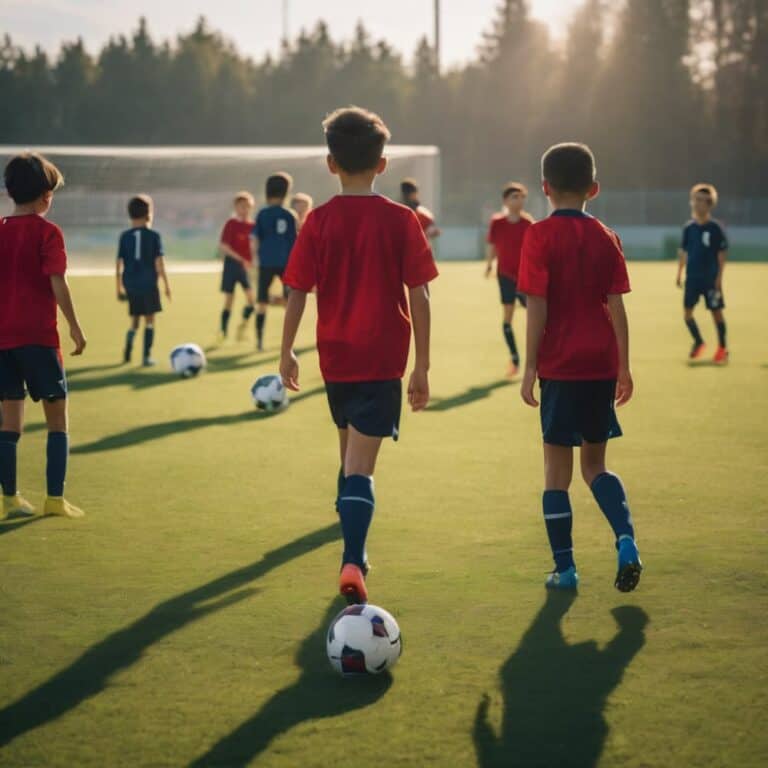What Should Youth Soccer Players Eat? The Complete Guide
It’s important to think carefully about what youth soccer players are eating. Good nutrition is essential for athletes at any age to perform at their best. Improper nutrition can lead to poor performance and can even result in sports injuries. This is why it’s so critical to ensure that proper nutrition is maintained.
For proper sports nutrition, youth soccer players should try to aim for a diet of around 60% carbohydrates, 25% fats, and 15% proteins. Youth soccer players should also increase their overall caloric intake.
This article aims to highlight exactly what youth soccer players should be eating before and after a game. We will also go into detail with some specific examples of the best foods for youth athletes. Let’s dive right in.
What Should a Child Eat Before a Soccer Game?
When game day comes, you may be wondering when and what a player should eat before the game takes place. Keep in mind that what’s eaten the actual day of the game only has a small role in the player’s energy for that game. What the player eats two to three days before the game is much more important.
With that in mind, it’s best for youth soccer players to eat around 3-4 hours before the game to avoid the effects of an insulin response that will make the players feel drained.
Carbohydrates are the best type of food for the day of the game. Below are some examples of great foods to choose for breakfast before a big game:
- Fruits
- Pancakes
- Cereals
- Waffles
Players typically do not like to play with uncomfortably full stomachs; and the more calories that are in a meal, the slower it will be digested and leave the stomach. Since fat is higher in calories than carbohydrates, it should be avoided as much as possible prior to a game. So, a player should eat a carbohydrate heavy meal early in the day before a game.
As previously stated, food should be avoided in the last hour leading up to the game as this could adversely affect performance.
DISCLOSURE: BoxtoBoxSoccerLife.com is a participant in the Amazon Services LLC Associates Program, an affiliate advertising program designed to provide a means for us to earn fees by linking to Amazon.com and affiliated sites.
What Should a Child Eat After a Soccer Game?
During the game, the child will use up a lot of carbohydrates so these must be replaced. It is best to eat within the first two hours after the game. Fruits are a great post-game snack as they tend to be light, easy to consume, and provide some good carbohydrates.
Protein is also very beneficial for helping the muscles recover after exercise. With this in mind, it would be a good idea to have a protein bar or shake on hand for the child to consume after the game.
Are Pancakes Good Before a Soccer Game?
Pancakes are an ideal breakfast before a soccer game. They provide plenty of carbohydrates which can be converted into a decent amount of energy for the game. The pancakes can even be topped with a bit of syrup and some fruit if desired.
Once the main meal has been eaten, the child may wish to have some small snacks. Pancakes can be quite filling and, depending on when the game is scheduled, may be enough to keep the child going until game time.
Ideal Sports Nutrition for Youth Soccer Players
Below is a table highlighting the ideal sports nutrition for youth soccer players:
| TYPE OF NUTRIENT | PERCENTAGE ESTIMATE |
| Carbohydrates | 60% |
| Fats | 25% |
| Proteins | 15% |
Based on the figures above, you can see that youth soccer players need to have a large carbohydrate intake, and that they should also aim to increase their protein intake.
We can break carbohydrates down even further into a spectrum ranging from simple carbohydrates — like sugars — to complex carbohydrates — like whole grains. Simple carbohydrates break down easily and burn “fast and hot”. Complex carbohydrates are more difficult to break down, so they are digested more slowly and last longer, but don’t provide as much instant “power”.
Soccer players need a good mix of these carbohydrates. Too many simple carbohydrates will provide energy quickly, but will be completely exhausted early and result in a depleting insulin response. Too many complex carbohydrates will keep the tank full longer, but could weigh a player down come game time.
Youth soccer players also need to increase their overall caloric intake. If a child aims to add a little bit more protein and carbohydrates to their diet but keep the fat intake the same, then their overall caloric intake will naturally increase. Plus, their macronutrient levels will greatly improve and will be optimal for soccer games.

A Quick Reference List of the Best Foods for Youth Soccer Players
When players need to get a quick carbohydrate fix before a game or for refueling between games, here are some good options to consider:
- Pancakes, pasta, breads, potatoes, toast, waffles – these tend to be higher in complex carbohydrates, but, if you think about how they’re typically eaten (pancakes with syrup, pasta with sauce, toast with jelly, etc.), a small amount of simple carbohydrates are often incorporated to provide a nice mix
- Dry cereals that are not totally concentrated with whole grains and are lower in sugar – in other words, balanced cereals
- Oranges, grapes, bananas – these fruits are high in natural sugar, but contain fiber, which slows their digestion
- Sports drinks, fruit juices, strawberry and chocolate milk – these are higher in simple carbohydrates but are more balanced than drinks like soda
- Believe it or not, cookies and snack crackers can be a great filler and a snack that can be taken anywhere – just don’t overdo it and make sure you offset the simple carbohydrates with some complex carbohydrates as well!
Which Foods Should Youth Soccer Players Avoid?
Below is a list of foods that a youth soccer player should try to avoid when possible:
- Soda (replace these with juices)
- Low-calorie foods such as sugar-free jellos – active soccer players need calories to perform optimally
- Large portions of meats and fats – protein is important for muscle development, but lean protein is best
- 100% high grain foods – too many complex carbohydrates will weigh a player down
- Extreme high fiber foods with low sugars / simple carbohydrates
Maintaining a Nutritious Diet for Youth Soccer Players
It’s beneficial to remember that every individual is different and that every child will react to changes in diet differently. If your child is having a bad reaction to eating a certain type of food before a game, remember it and don’t let them eat that particular food before a game again.
If higher sugar levels or excess simple carbohydrates cause a low blood sugar reaction, then be sure to make notes and change it for the future.
At the end of the day, it’s important to remember that very few children will eat properly to prepare for their soccer games on their own. As a parent, you will need to learn which foods work for your child and which ones don’t.
It can help to keep track of do’s and don’ts in the notes on your cellphone so that you don’t forget.
The Importance of Proper Hydration for Youth Soccer Players
Proper hydration is extremely important for youth soccer players youth soccer players. When a child drinks the right amount of liquids during the sports season, he/she will experience a huge range of benefits. Appropriate hydration will have a positive impact on the following:
- Circulation
- Muscle function
- Energy
- Blood Pressure
- Recovery
Good hydration can also reduce the risk of injury. On the other hand, when a child is dehydrated, his/her performance and health can be negatively affected.
Water is the most recommended drink for sports hydration. However, as you might imagine, many children won’t drink enough water to properly hydrate, so fruit juices or sports drinks can be consumed in these instances to supplement.
Ensuring your child is properly hydrated can have a great impact on their performance. Encourage them by explaining the benefits of drinking more.
Quick Tips for Optimal Youth Soccer Nutrition
Below is a list of some quick tips for youth soccer nutrition:
- Diet should consist of 60% carbohydrates, 25% fat, 15% protein
- Carbohydrates should be primarily in the form of whole grains, fresh fruits, potatoes, pasta
- Proteins should come from lean meats, nuts and fish
- Saturated fat intake should be reduced where possible
- The pre-match meal should be eaten around 3-4 hours before the match
- The child should stay well hydrated at all times including during the match
- After the match, the child should consume a high-carb meal within the first 2 hours
- Adequate vitamins and minerals can be obtained from food so there is no need for any additional supplements
Final Thoughts
Overall, due to their increased activity level, youth soccer players need to increase their overall caloric intake. These calories should be in the form of an increase in carbohydrates and proteins. Youth soccer players also need to focus on staying very hydrated at all times, including during the match.
Youth soccer players will need to recover after their match, so it’s important that the children eat plenty of carbohydrates to replenish their fuel and protein to help their muscles recover. Giving your child a well-balanced diet will give him/her the best chance of performing his/her best.
The proper timing and balance of your child’s eating will give them the best chance to be successful in their soccer games. As a parent, you can provide them with all the food types and nutrients that they need to help them work to their best.







